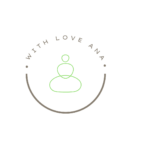Anxiety is a common mental health condition characterized by feelings of worry, nervousness, or fear that are often disproportionate to the actual threat or situation. It can manifest in various ways.
Symptoms:
- Excessive Worry: Persistent and uncontrollable worrying about various aspects of life, including work, health, finances, or relationships.
- Restlessness: Feeling on edge or unable to relax, accompanied by physical symptoms like muscle tension, fidgeting, or an inability to sit still.
- Irritability: Being easily agitated, irritable, or quick to anger, even in situations that wouldn’t typically provoke such reactions.
- Fatigue: Feeling constantly tired or worn out, even after getting enough sleep, due to the mental and physical toll of anxiety.
- Difficulty Concentrating: Trouble focusing on tasks or making decisions, often accompanied by racing thoughts or mind going blank.
- Muscle Tension: Physical symptoms such as tightness in the muscles, headaches, jaw clenching, or trembling.
- Sleep Disturbances: Difficulty falling asleep, staying asleep, or experiencing restful sleep due to racing thoughts, worries, or physical discomfort.
- Rapid Heartbeat: Palpitations or a racing heart, often accompanied by sweating, shortness of breath, or chest tightness.
- Gastrointestinal Symptoms: Digestive issues like stomachaches, nausea, diarrhea, or irritable bowel syndrome (IBS) symptoms can be exacerbated by anxiety.
- Avoidance Behavior: Avoiding situations or activities that trigger anxiety, leading to social isolation or impairment in daily functioning.
It’s important to note that experiencing occasional anxiety is a normal part of life, but if these symptoms persist or significantly interfere with daily life, it may indicate an anxiety disorder that warrants professional evaluation and treatment.
According to Biodecoding, anxiety is often a response to conflicting desires or beliefs, where our aspirations clash with our perceived limitations. When our traditional psychological approaches fail to address these inner conflicts, anxiety may arise as a manifestation of unresolved emotional or psychological stressors.
Biodecoding proposes that these unresolved traumas or emotional tensions can manifest physically, leading to conditions such as anxiety. Additionally, anxiety can stem from a discrepancy between what we want to do and our beliefs about what is possible or acceptable. This inner conflict can create a sense of urgency, pushing us to move quickly and causing our thoughts to be fixated on the future, preventing us from fully living in the present moment. The individual experiencing anxiety sometimes feels a sense of impending threat or danger, mentally envisioning negative outcomes or anticipating harm. This biological response triggers feelings of unease or apprehension, activating the body’s natural mechanisms to generate extra energy required for potential action.
Natural tips to help manage anxiety include:
- Mindfulness and Relaxation Techniques: Practices such as deep breathing exercises, meditation, yoga, and progressive muscle relaxation can help calm the mind and body, reducing anxiety symptoms.
- Regular Exercise: Engaging in physical activity releases endorphins, which are natural mood lifters. Exercise also helps reduce stress and tension in the body, promoting relaxation and better sleep.
- Balanced Diet: Eating a nutritious diet rich in fruits, vegetables, whole grains, and lean proteins provides essential nutrients that support brain health and mood regulation. Avoiding excessive caffeine, sugar, and processed foods can also help stabilize energy levels and mood.
- Adequate Sleep: Prioritizing good sleep hygiene and ensuring sufficient rest can improve resilience to stress and anxiety. Establishing a regular sleep schedule, creating a calming bedtime routine, and creating a comfortable sleep environment are essential for quality sleep.
- Social Support: Maintaining connections with friends, family, or support groups can provide emotional validation, perspective, and encouragement during challenging times. Sharing experiences and feelings with trusted individuals can alleviate feelings of isolation and promote a sense of belonging.
- Don’t rely on alcohol, drugs, or other substances to cope with anxiety, as they can worsen symptoms in the long run.
- Don’t isolate yourself; instead, reach out to friends, family, or support groups for connection and understanding.
- Don’t avoid situations or triggers that provoke anxiety, as avoidance can reinforce fear and make symptoms worse over time.
- Don’t hesitate to seek professional help if anxiety symptoms become overwhelming or interfere with your daily life. A therapist or counselor can provide valuable support and guidance tailored to your needs.
It’s essential to remember that managing anxiety is a multifaceted process, and what works for one person may not work for another. Seeking professional help from a therapist or counselor trained in treating anxiety disorders can provide personalized support and guidance tailored to individual needs.
In addition to the natural tips mentioned above, certain foods and natural remedies can also help manage anxiety:
Foods:
- Omega-3 fatty acids: Found in fatty fish like salmon, walnuts, flaxseeds, and chia seeds, omega-3 fatty acids have been linked to reduced anxiety symptoms and improved mood.
- Complex carbohydrates: Foods such as whole grains, sweet potatoes, and legumes can help stabilize blood sugar levels, which may help reduce anxiety and promote a more balanced mood.
- Foods rich in magnesium: Magnesium plays a crucial role in regulating neurotransmitters involved in mood regulation. Incorporating foods like spinach, almonds, avocado, and dark chocolate can help boost magnesium levels and alleviate anxiety.
- Probiotic-rich foods: Gut health has been linked to mental health, and consuming probiotic-rich foods like yogurt, kefir, sauerkraut, and kimchi can support a healthy gut microbiome, potentially reducing anxiety symptoms.
Natural Remedies:
- Lavender essential oil: Inhalation or topical application of lavender essential oil has been shown to have calming effects on the nervous system, reducing anxiety and promoting relaxation.
- Chamomile tea: Chamomile tea is known for its soothing properties and may help reduce anxiety and improve sleep quality when consumed regularly.
- Lemon balm: Lemon balm is an herb from the mint family that has been used traditionally to relieve stress and anxiety. Drinking lemon balm tea or using it as a supplement may help promote relaxation and ease anxiety symptoms.
- Valerian root: Valerian root is a natural sedative that has been used for centuries to promote relaxation and reduce anxiety. It can be taken as a supplement or brewed into a tea for its calming effects.
Incorporating these foods and natural remedies into your daily routine, along with practicing mindfulness, exercise, and seeking social support, can contribute to a comprehensive approach to managing anxiety and promoting overall well-being.
The information provided in this post is for educational purposes only and is not intended as medical advice. As always, it’s essential to consult with a healthcare professional before starting any new dietary or herbal regimen, especially if you have underlying health conditions or are taking medications.
This is one of the products I recommend.
When acute anxiety and panic hit, it’s the only thing you can think about.
Mental health is a widely discussed topic today, we’re more aware of it than ever.
That’s why so many people are searching for solutions that address the root cause of anxiety… so it stops controlling every single thought.
Because…
The subconscious mind directs 95% of our conscious attention.
That means…
We see and feel what our subconscious trauma and beliefs tell us to.
When you use Anxiovita to calm the nervousness caused by trauma stored in your subconscious…
Your feelings and experiences shift automatically, while you sleep.
Your brain processes today, yesterday, and even the distant past during REM sleep.
The ingredients in Anxiovita are designed to work overnight, supporting relaxation and emotional harmony, while you sleep.
REM sleep helps rewire the brain and form new neural connections.
The first step to emotional release, helping your subconscious process distress and future worries during REM sleep.
By processing and releasing old distress overnight, you can wake up and tell a new story.
It’s nearly impossible to explain what a panic attack feels like to someone who hasn’t experienced one.
Because…
Panic attacks feel like the end of the world, like checking out isn’t such a bad idea.
And each panic attack imprints even more trauma.
With love Ana!
I only recommend products or services that I personally use and believe will add value to my audience. Your support in purchasing through these links enables me to continue creating helpful content. Thank you for your support!

